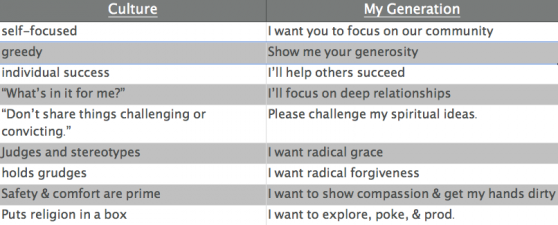My wife and I prize good manners. We’re from the South, so Southern hospitality flows through our veins. Even if we don’t like you, you’ll think we do. 😊
So we teach our kids to have good, respectful manners as well. Here’s how a typical conversation goes at our house:
Me: Hey Rex!
Rex: What?
Me: Rex, do you want to try to say that differently?
Rex: Oh yeah, “Yes sir?”
It’s not that I want to try to keep him in a subservient role by calling me “sir.” I don’t want to remind him every day of his “place.” I also am not on a power trip where I feel like I “deserve” to be called “sir” because of my position or how hard I work. It has nothing to do with personhood.
Yet it has everything to do with personhood.
I remember in seminary being warned not to confuse behavior modification with Gospel transformation. That to boil transformation down to altering some behaviors is to rip the power out of the cross. The point of Jesus’ death wasn’t to make us “good” people…the point was to reconcile two polar opposites: God and sin.
Did Jesus die to make us morally good people?
No sir. He didn’t.
But one of the rules my wife and I have as parents is that when our kids address us, and all adults for that matter, they speak with respect. That means a few things.
- Saying, “Yes sir/ma’am” and “No sir/ma’am.”
- Looking people in the eye.
- Listening when others are speaking.
- Learning people’s names.
- Responding when spoken to.
- Speaking up when you want/need something. (and not just expecting people know what you want)
I’m sure that my seminary friends will differ from me. In fact, I would probably have disagreed with me while I was in seminary. But now as a parent, I’m thinking otherwise. I don’t just see “good manners” as a parenting tactic to keep Southern charm alive and well. I also don’t see it as a way to keep my thumb on my kids and their behavior. I don’t equate it with the sum total of their spiritual lives, yet it’s a fruit of their heart.
“Good manners” are a theological stance. I see 4 main reasons why having good manners is a reflection of a heart that first and foremost loves God. (yes, you can have good manners for a variety of other reasons. Just like you can choose to do all kinds of good things for a variety of other reasons. You don’t have to love Jesus to choose not to murder people, do you?)
4 reasons why good manners are theological
1. As image bearers of God, everyone deserves respect.
We have been created in the image of God. Every one of us. As such, every person deserves a level of respect. Have they lived worthy of that? Probably not. But that doesn’t negate the image of God in them.
So God created mankind in his own image,
in the image of God he created them;
male and female he created them. – Genesis 1:27
When we treat others with kindness, we respect the image of God in them.
2. Good manners show we believe God is loving, patient, and kind.
When we are loving, patient, and kind towards others, we reflect our deeply held belief that God is that same way. When we are loving, patient, and kind towards others even when they don’t deserve it, we reflect a God who operates the same way.
Love is patient and kind. Love is not jealous or boastful or proud or rude. It does not demand its own way. It is not irritable, and it keeps no record of being wronged. – Paul, 1 Corinthians 13:4-5
When we treat others with kindness, we reflect a God who does the same.
3. Good manners show how pleasant life can be.
Wouldn’t you much prefer to be treated with respect than without it? Isn’t life much more pleasant when, even if/when we disagree, we can do so civilly? I’m not suggesting we need to agree with everyone, and affirm their every thought and action. Love chooses a different way, even in moments of disagreement. Love chooses kindness not at the expense of truth, but alongside it.
But I tell you, love your enemies… – Jesus, Matthew 5:44
4. Kindness leads to repentance. Not harshness.
Check this out: “Don’t you see how wonderfully kind, tolerant, and patient God is with you? Does this mean nothing to you? Can’t you see that his kindness is intended to turn you from your sin?” – Paul, Romans 2:4
Harshness, biting words, and condemnation didn’t lead you to repentance. Kindness does. If you want to be an agent of reconciliation, don’t be a jerk.
For the mouth speaks what the heart is full of. – Jesus, Luke 6:45
It’s God’s kindness that leads us to repentance, not His wrath. Kindness doesn’t nullify or weaken truth, and the power of our sin. If I’m kind and respectful towards you, that doesn’t mean I condone everything you do. It means I recognize the way God operates with me, and how I’ve been led to repentance. And it means I’ve got the same hope for everyone.
When we use good manners, we treat others with kindness. Because we have eternity in mind.
So I’ve got more in mind when I correct my children on their “sirs” and “ma’ams.” And there are plenty of other ways to teach our children to respect and treat others with kindness. But I’ve got a Gospel focus in my parenting. I’ve got an others-focus that I want them to grow in.
But maybe I’m just being old-fashioned?










